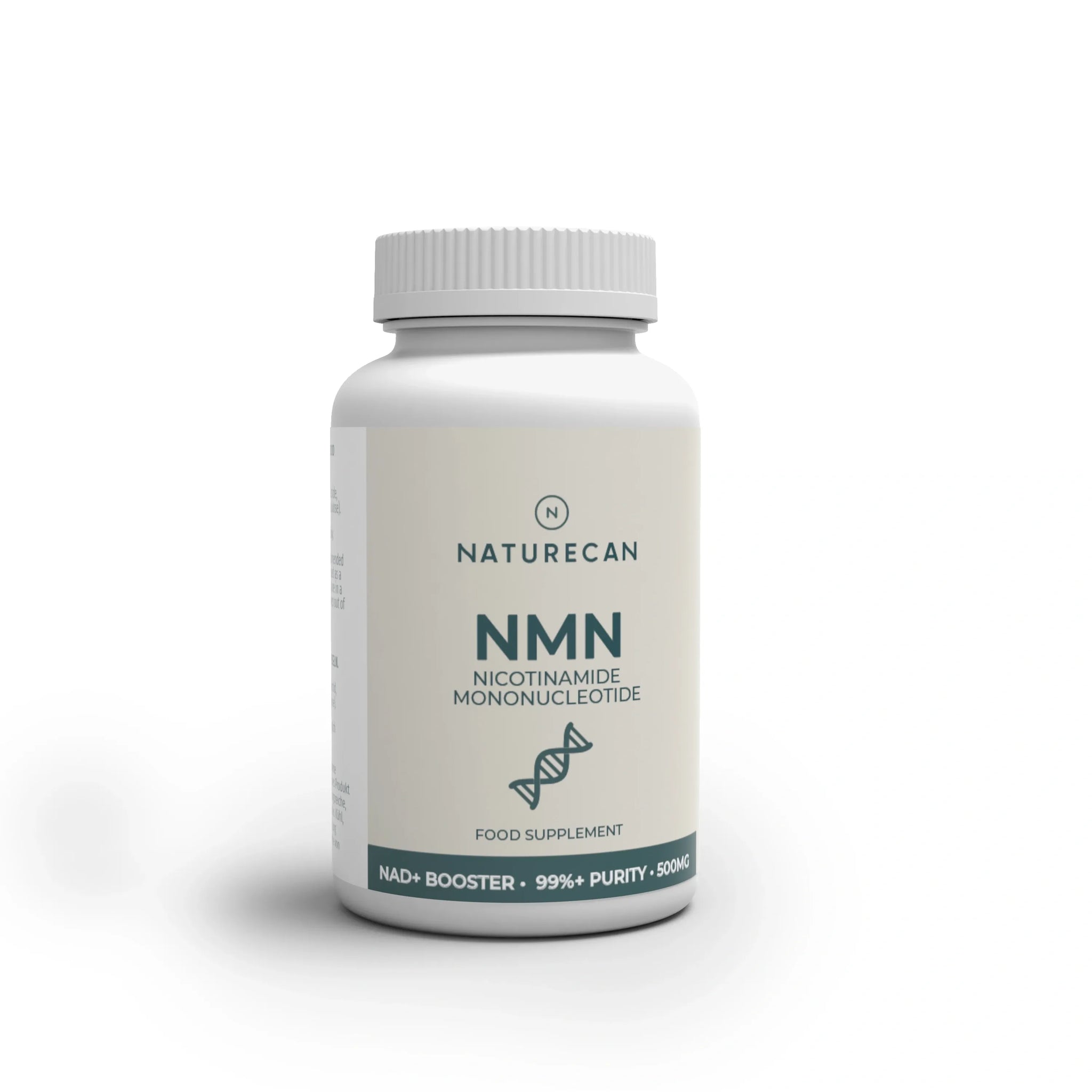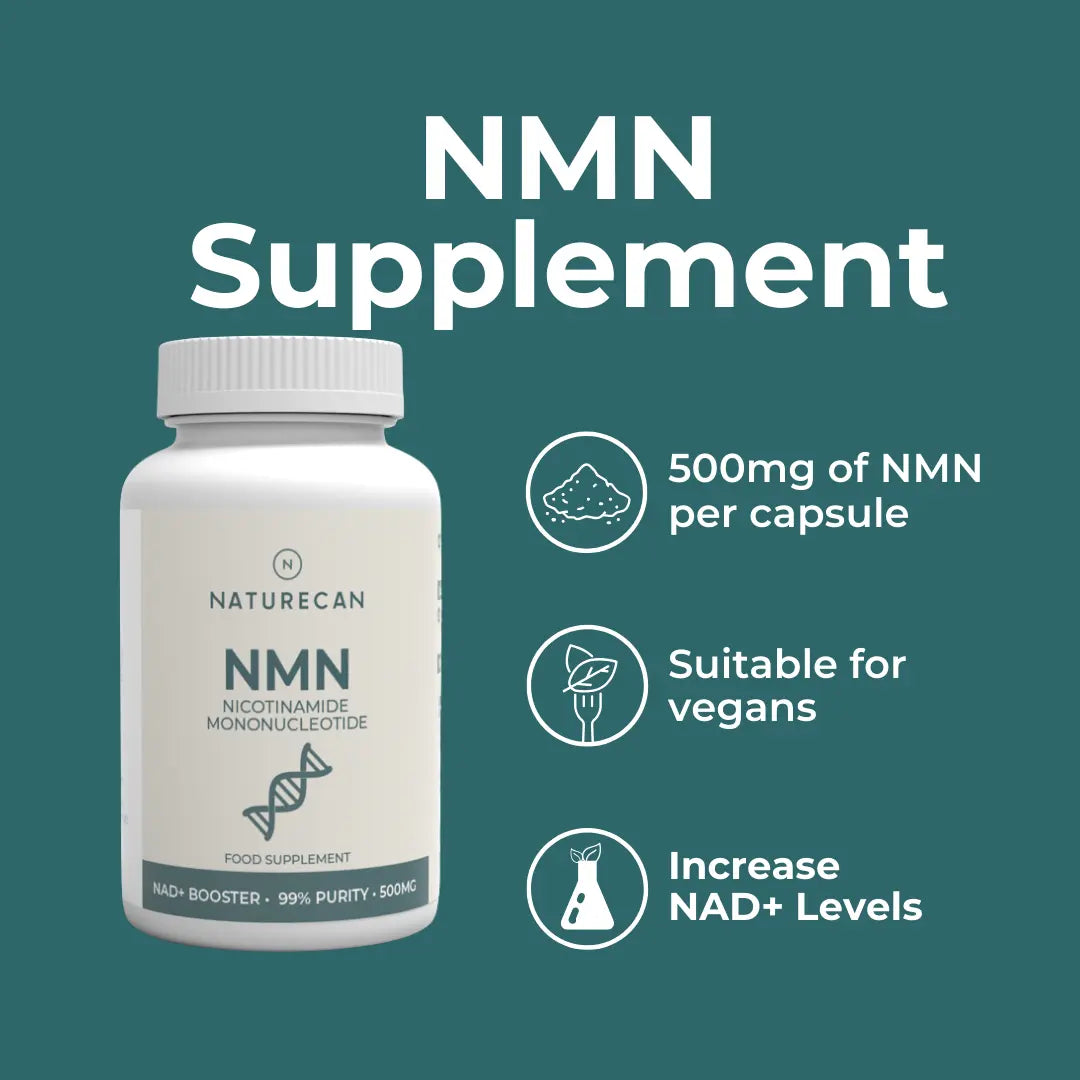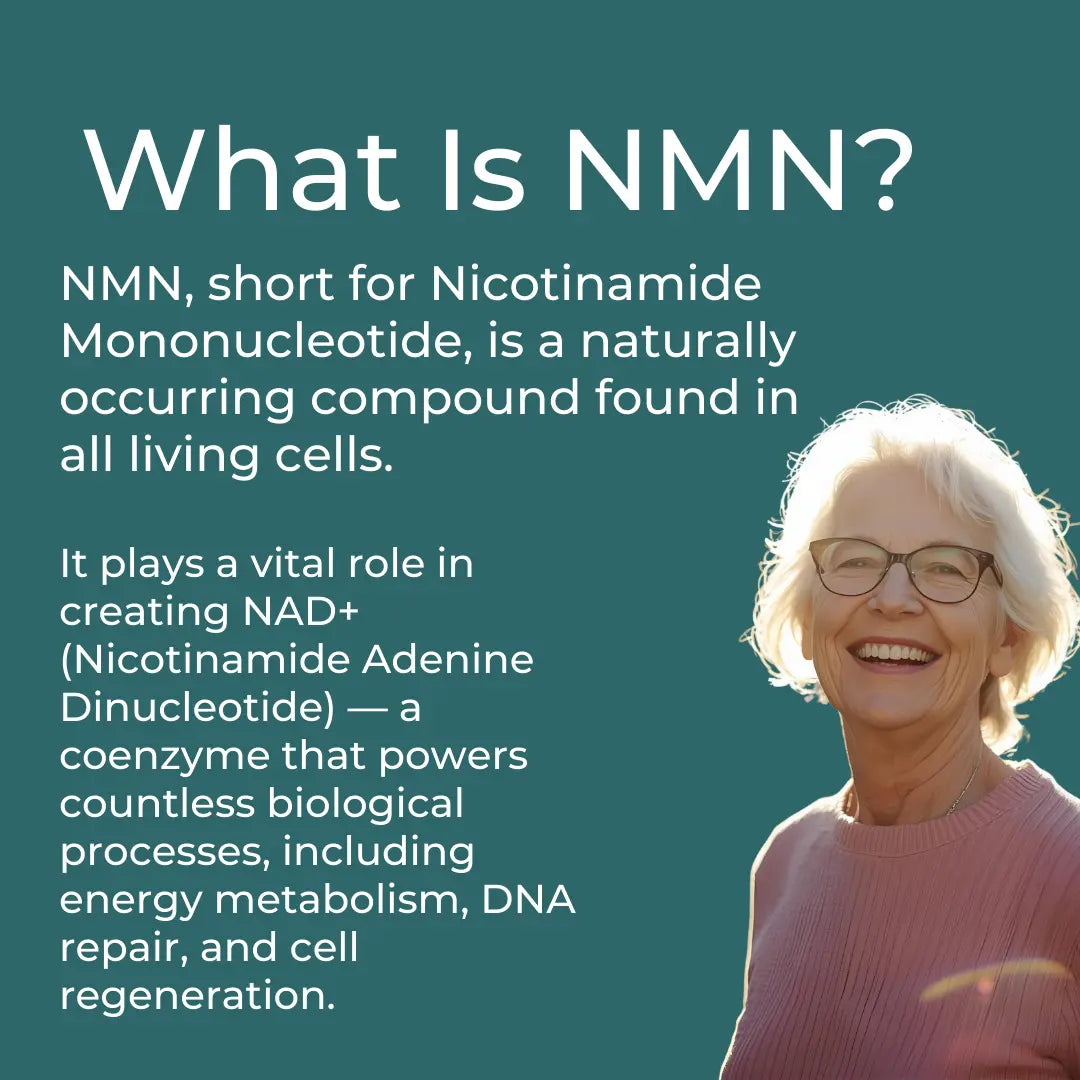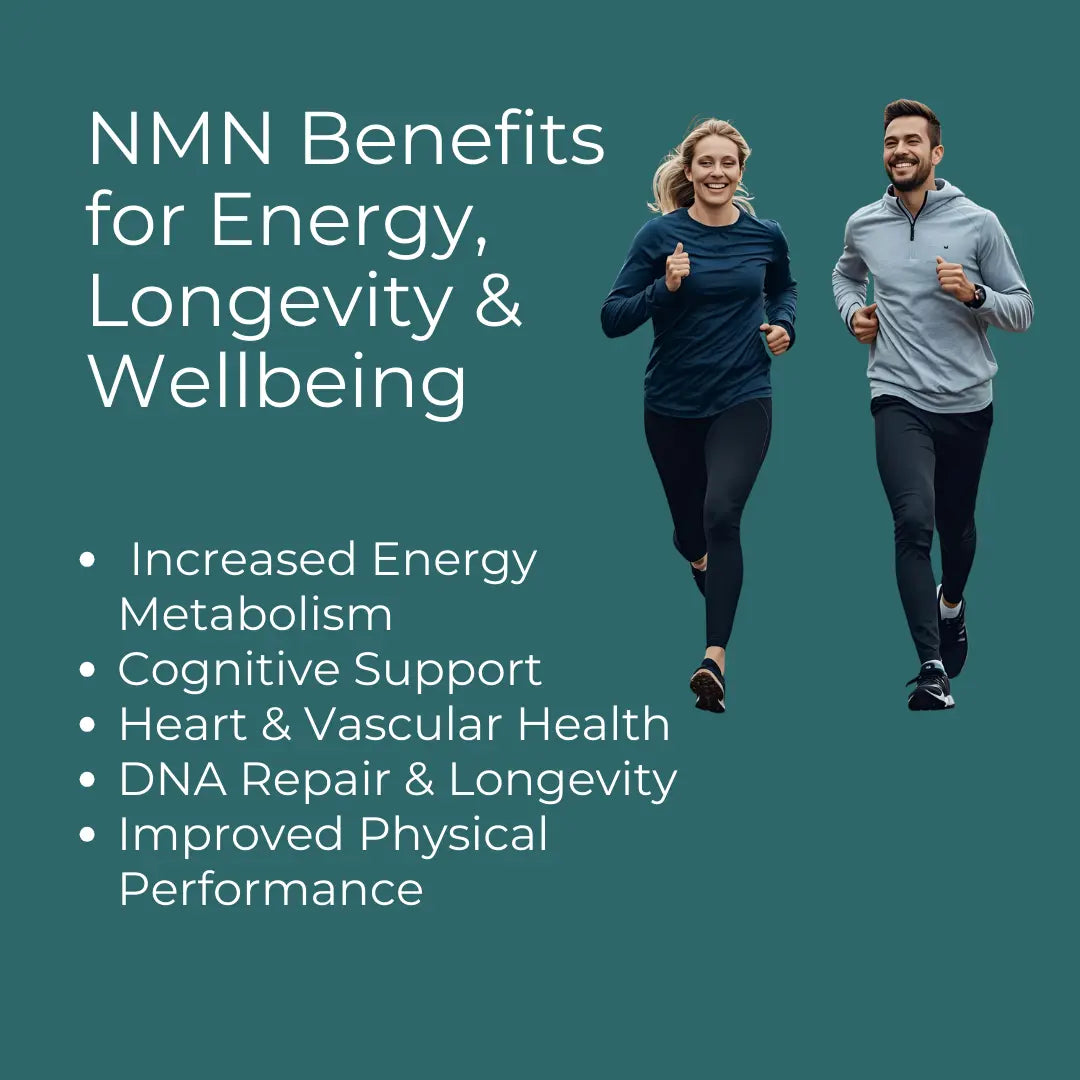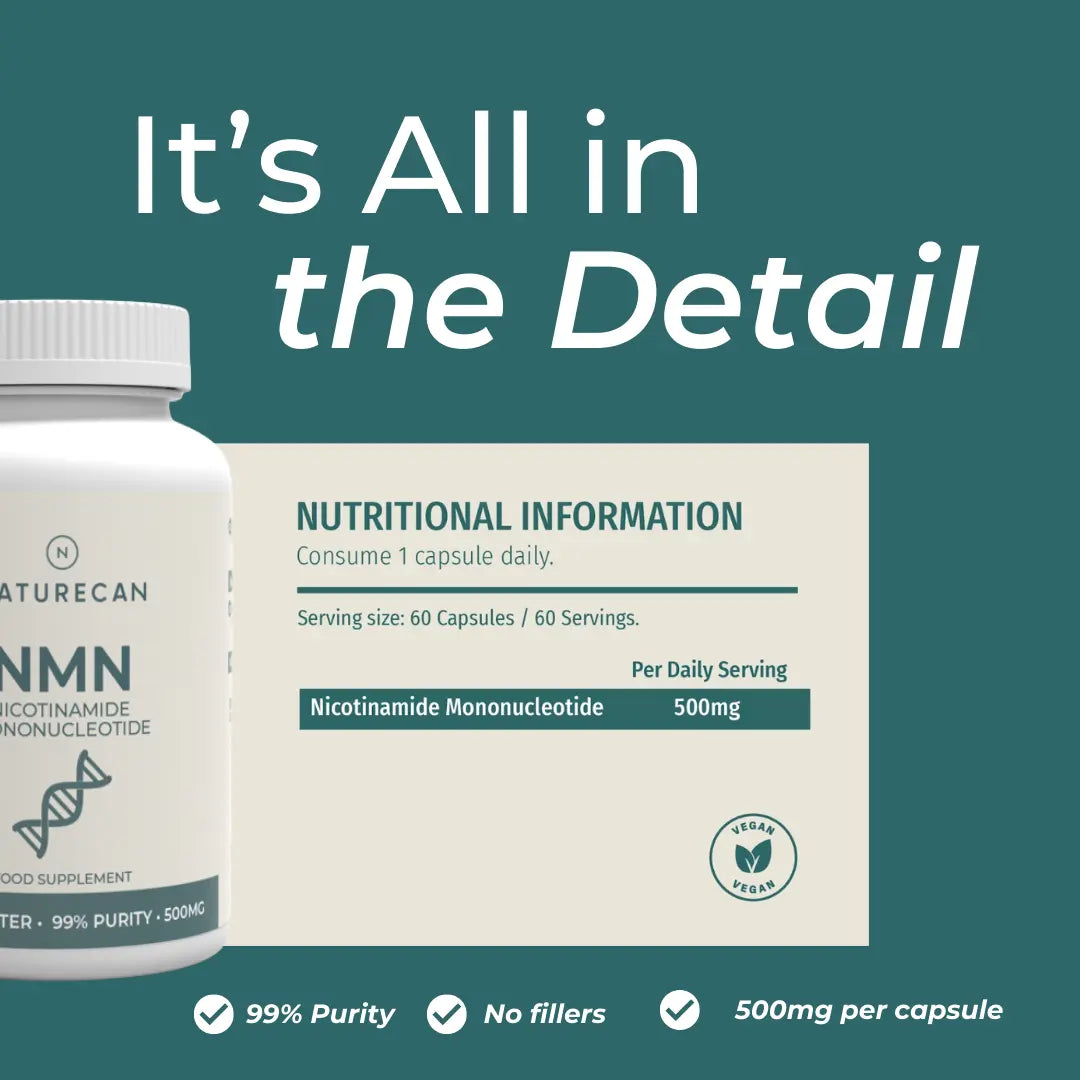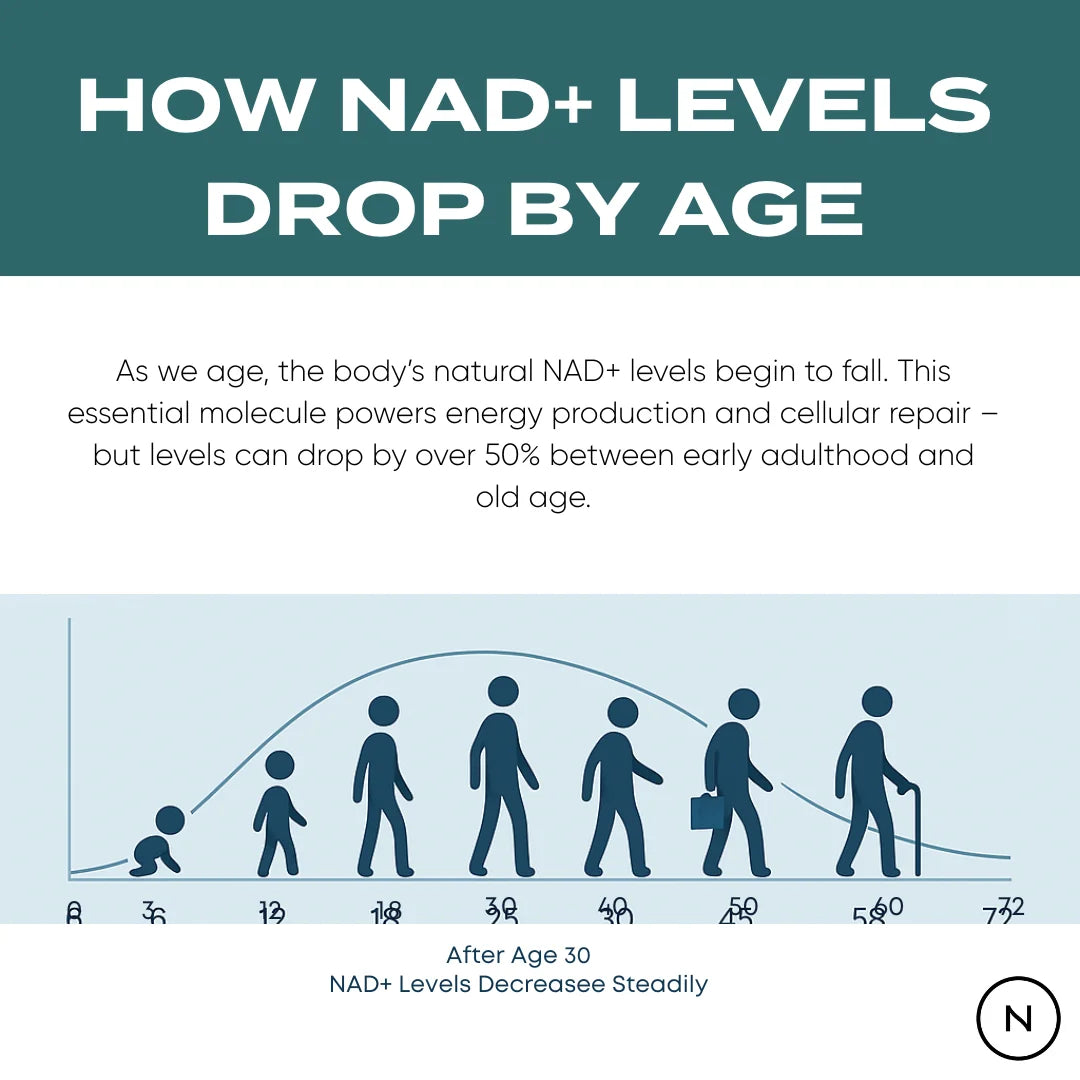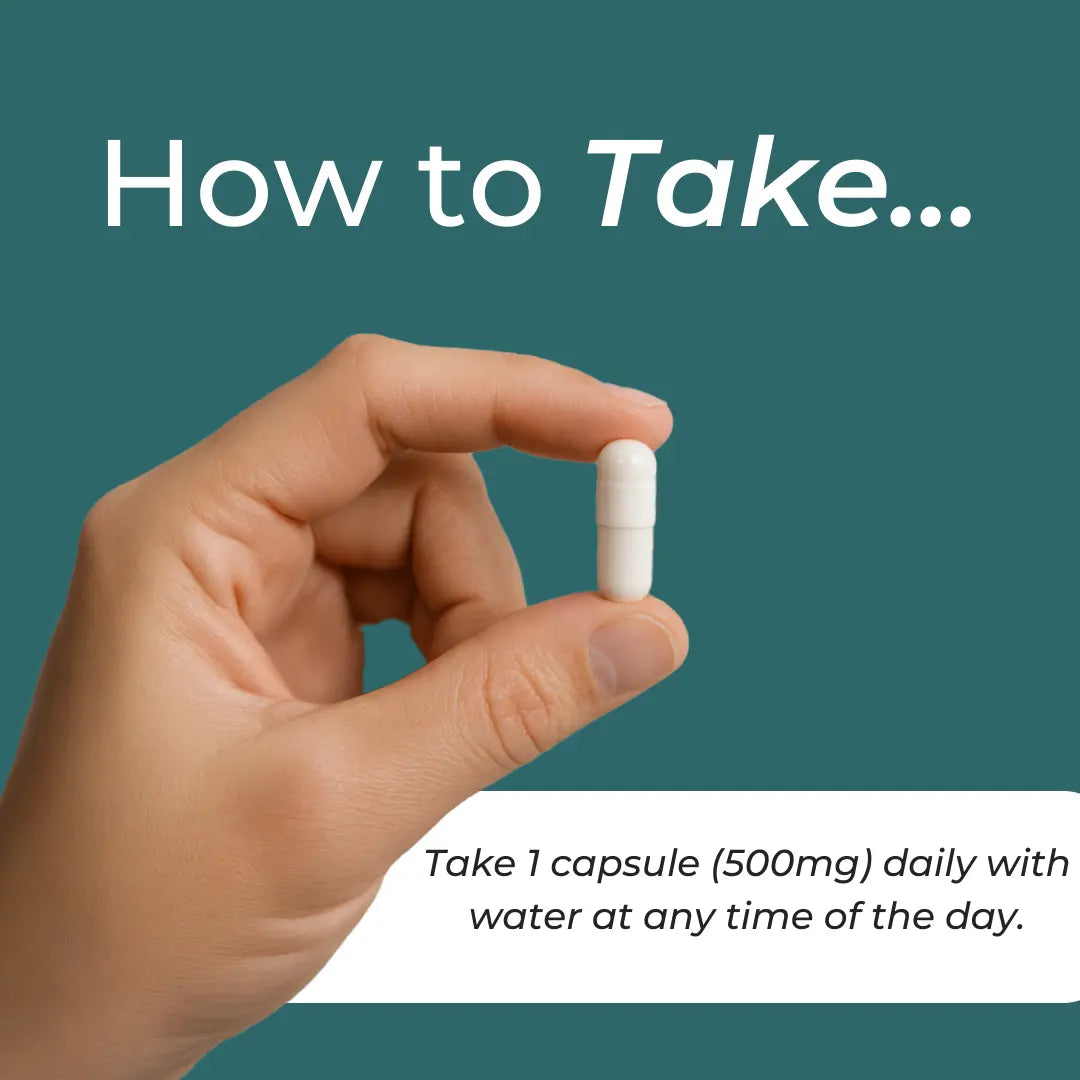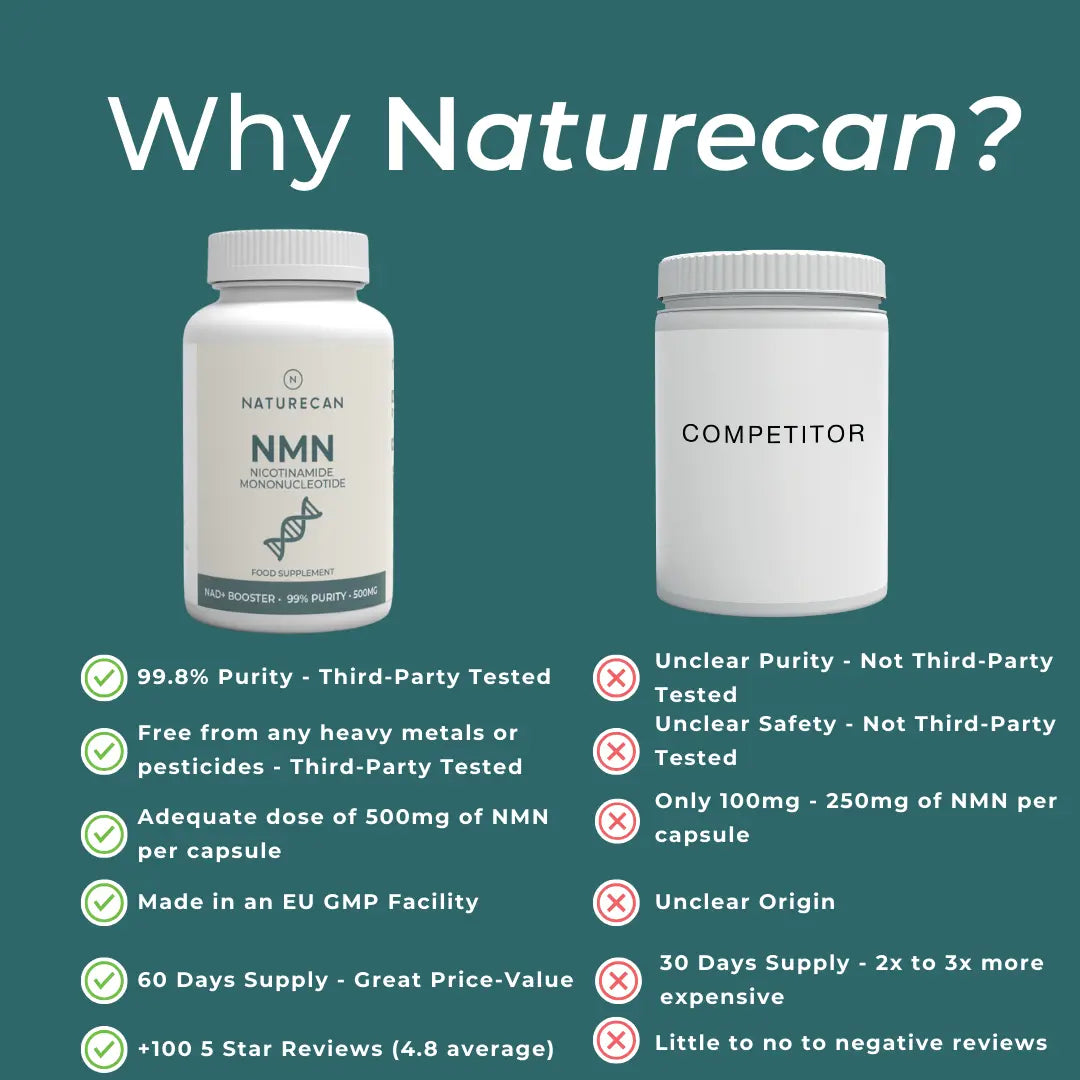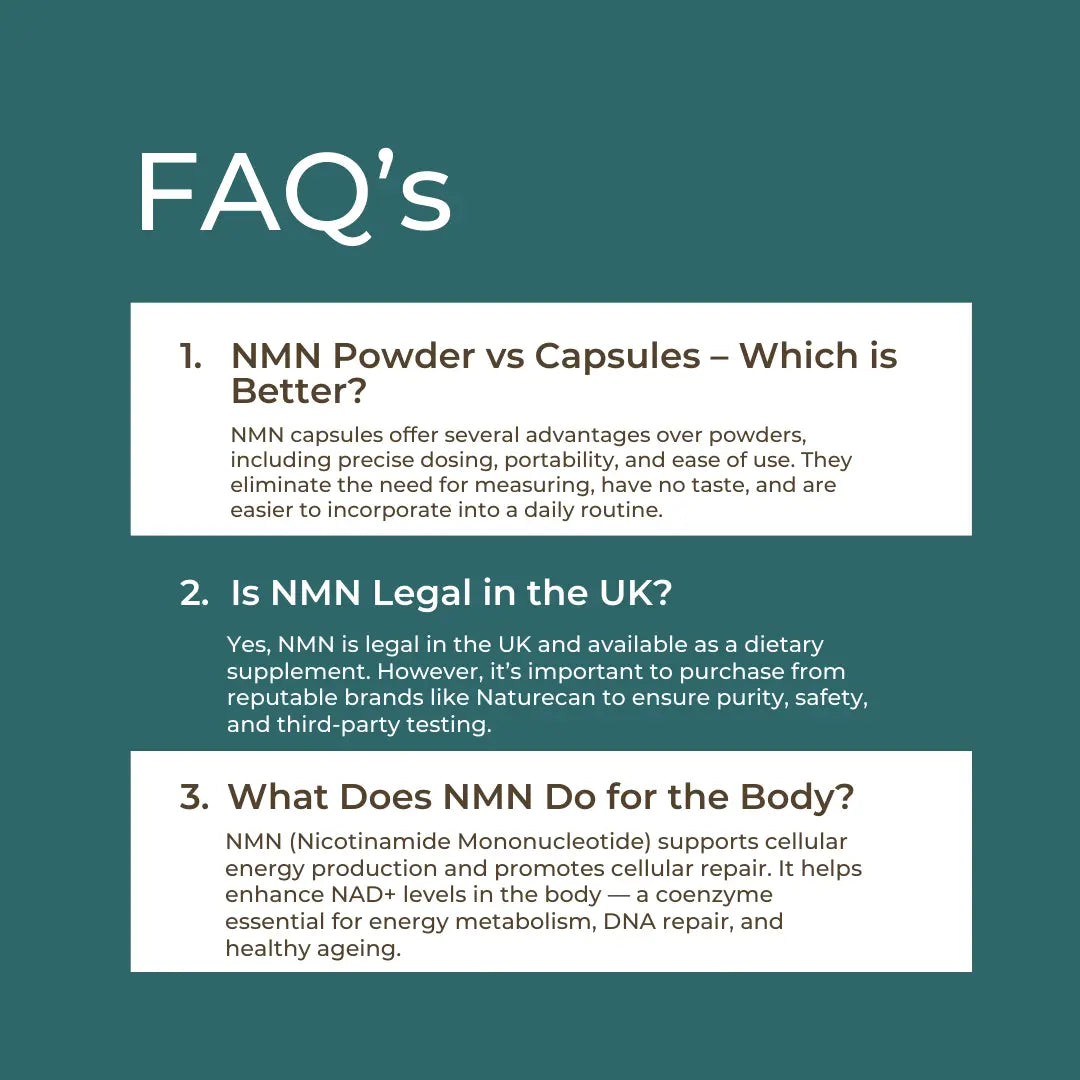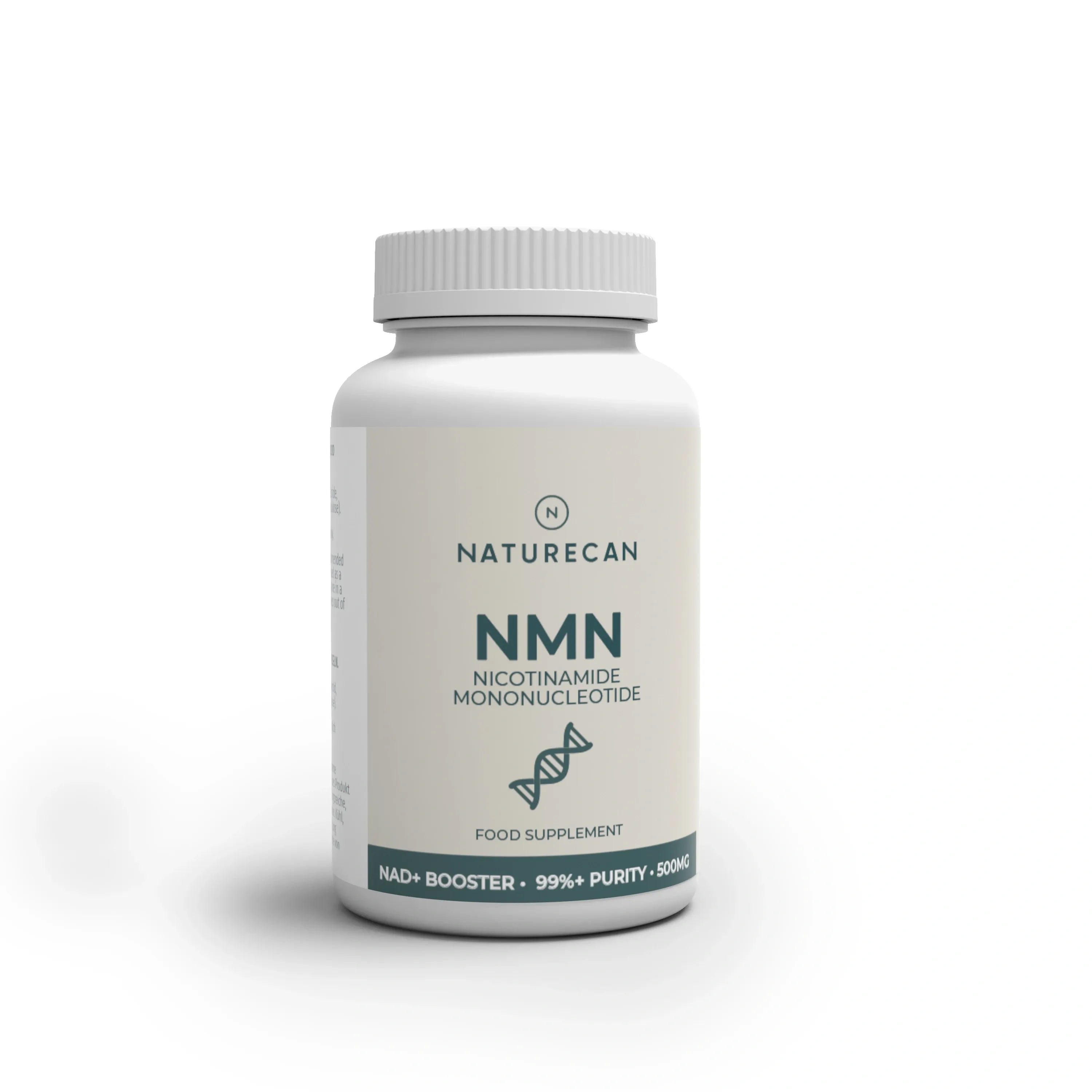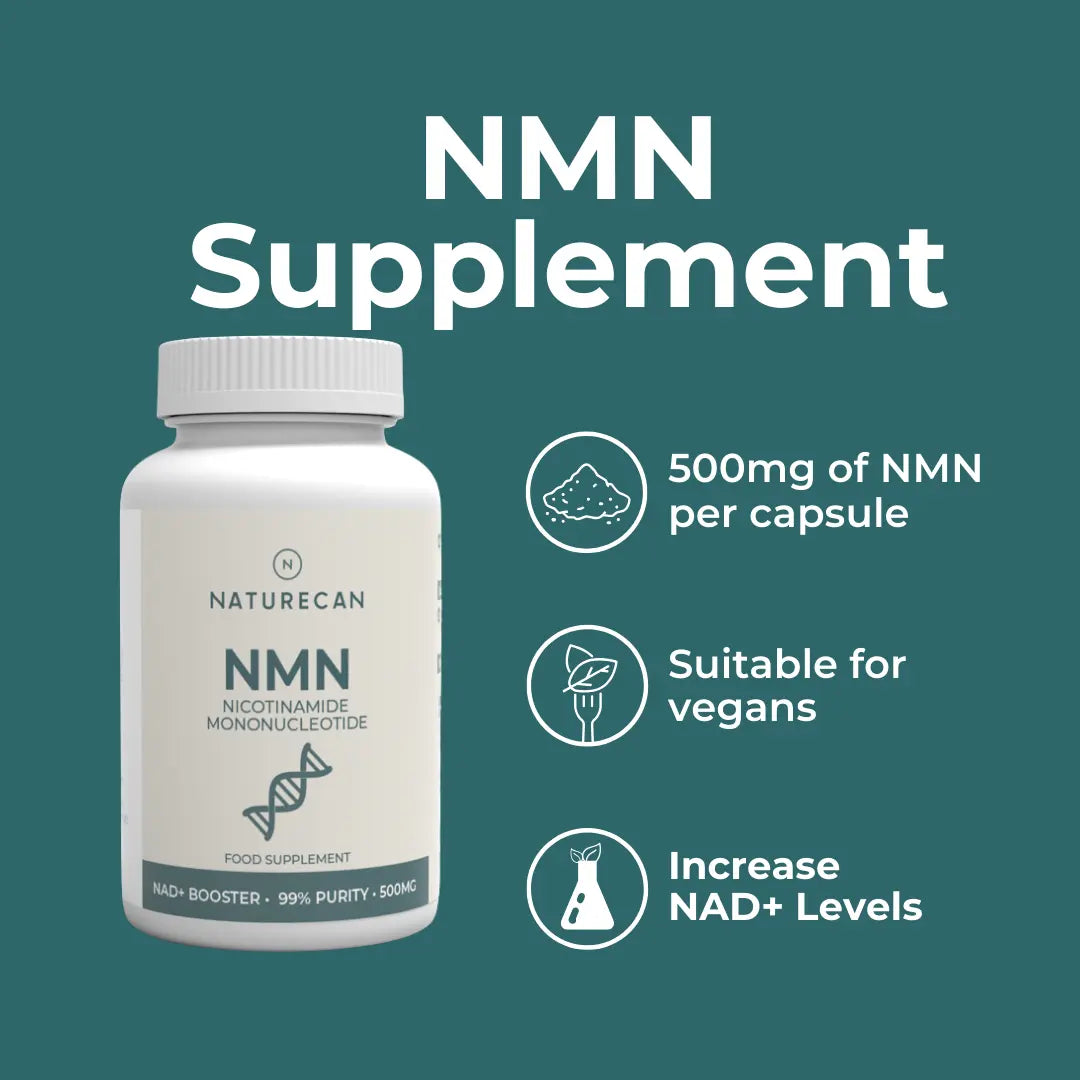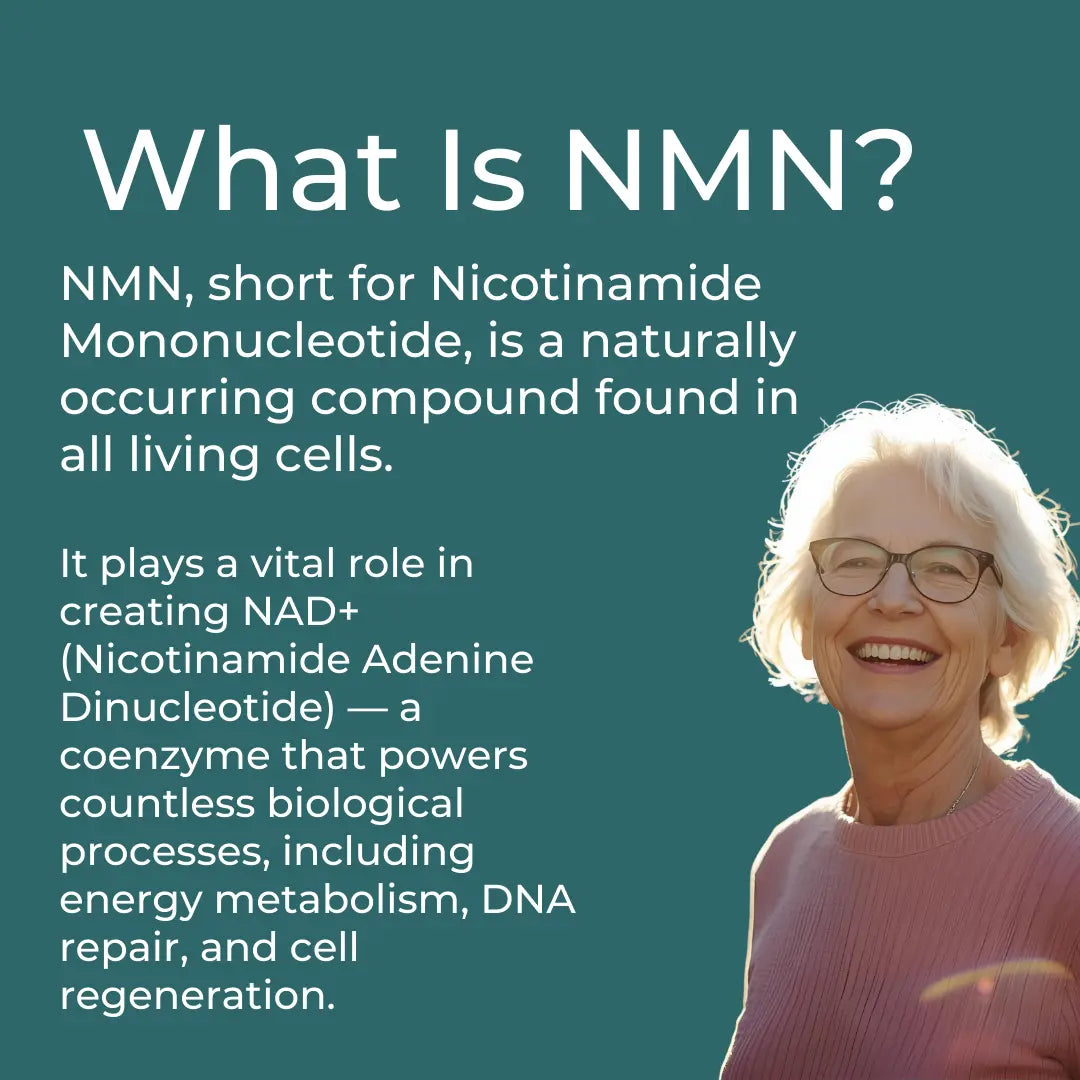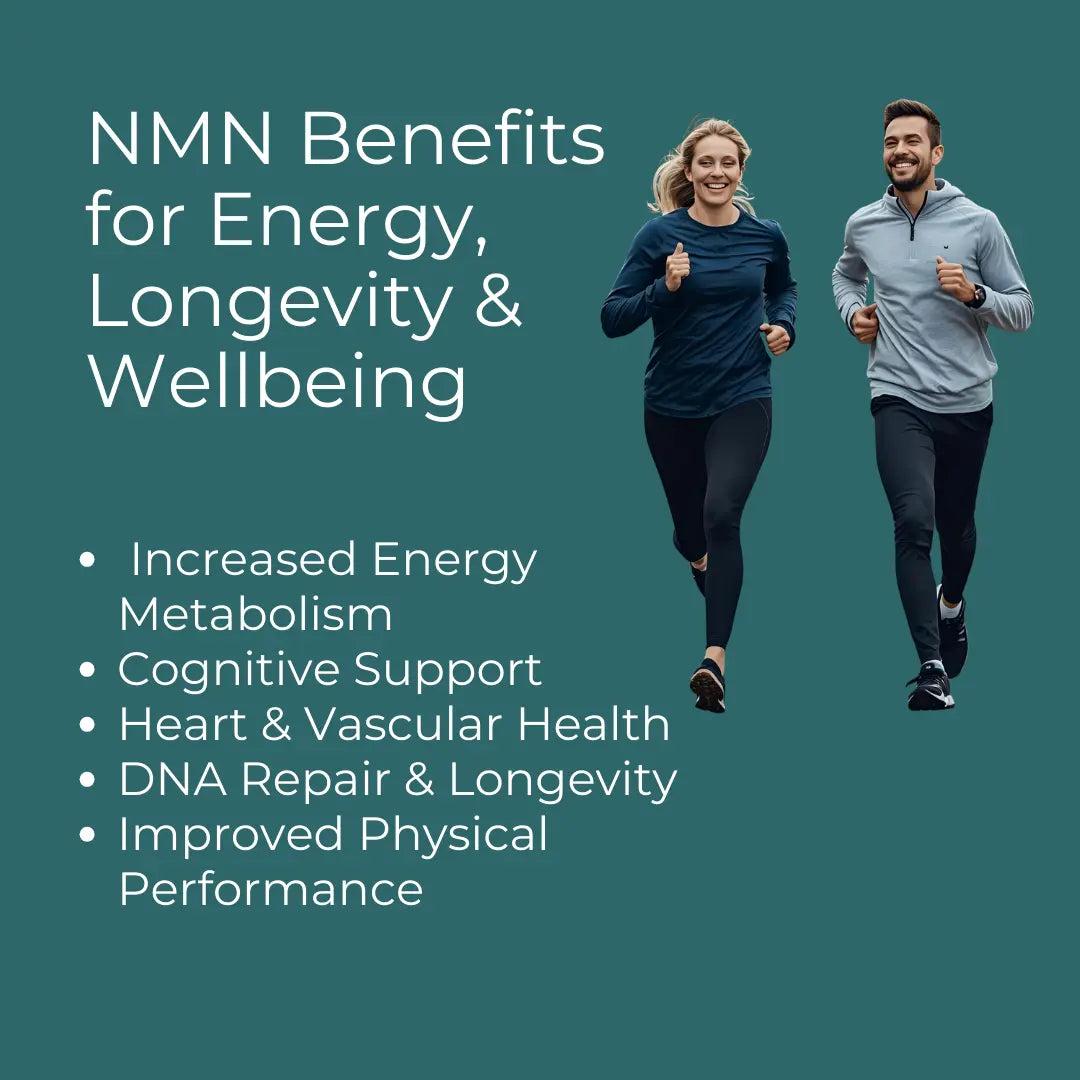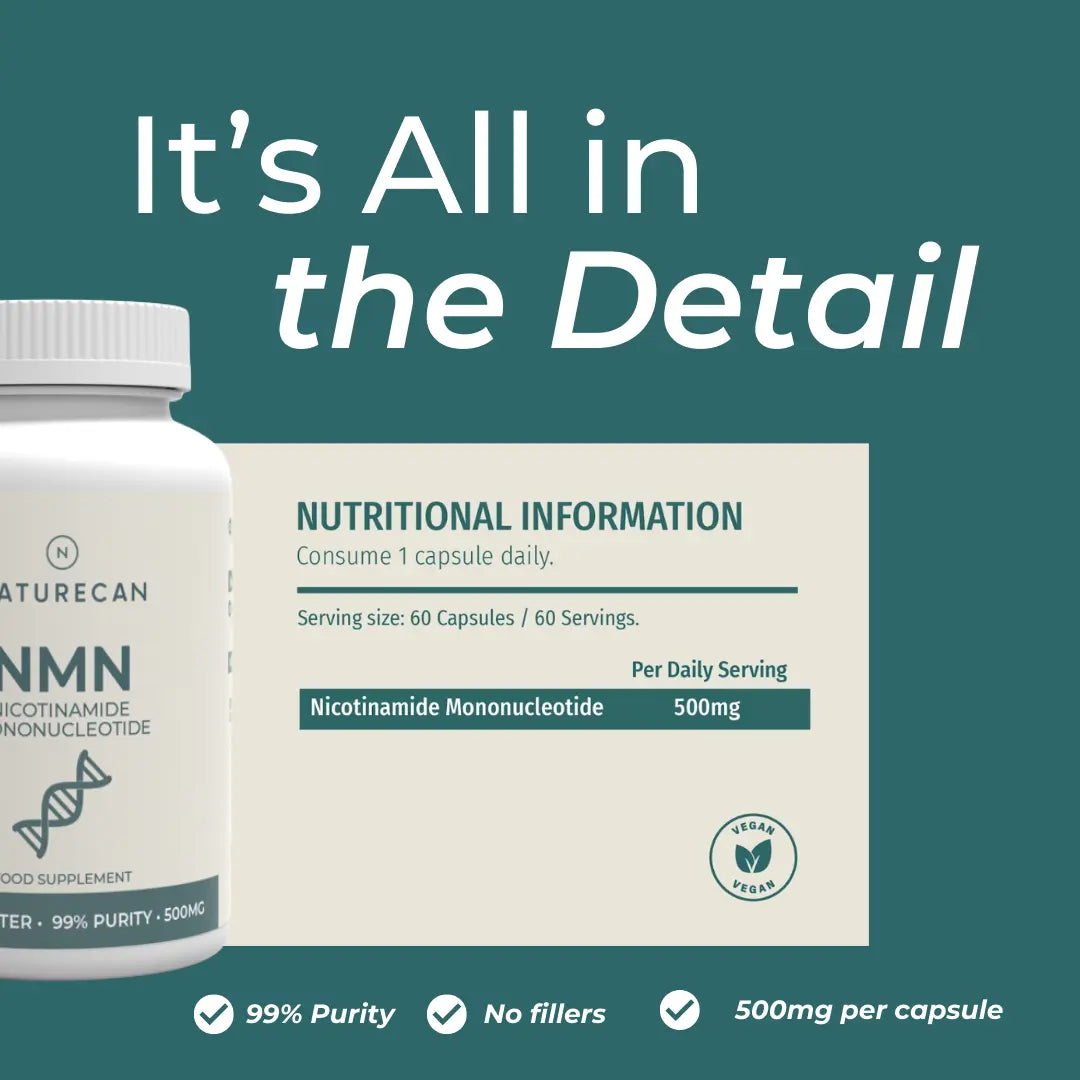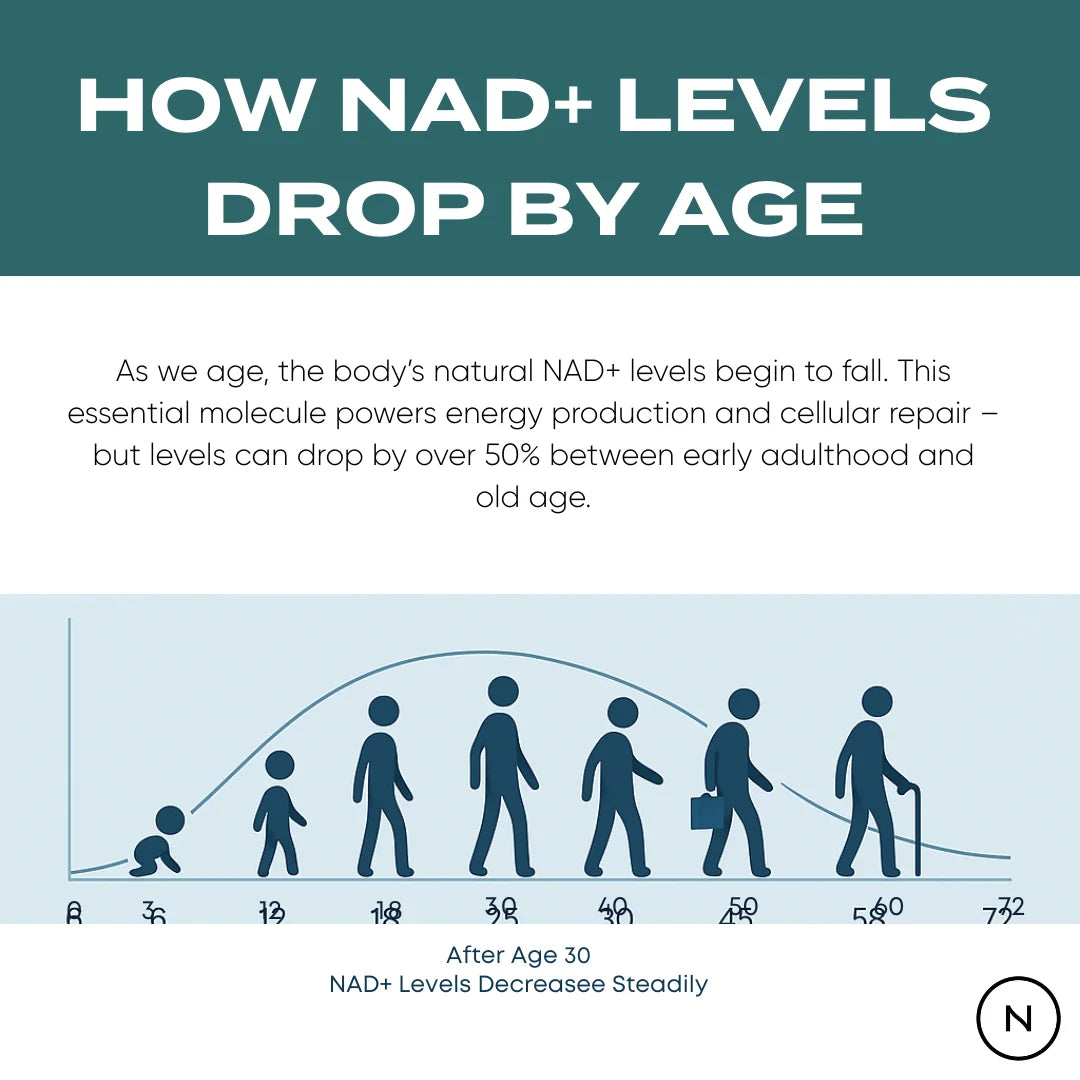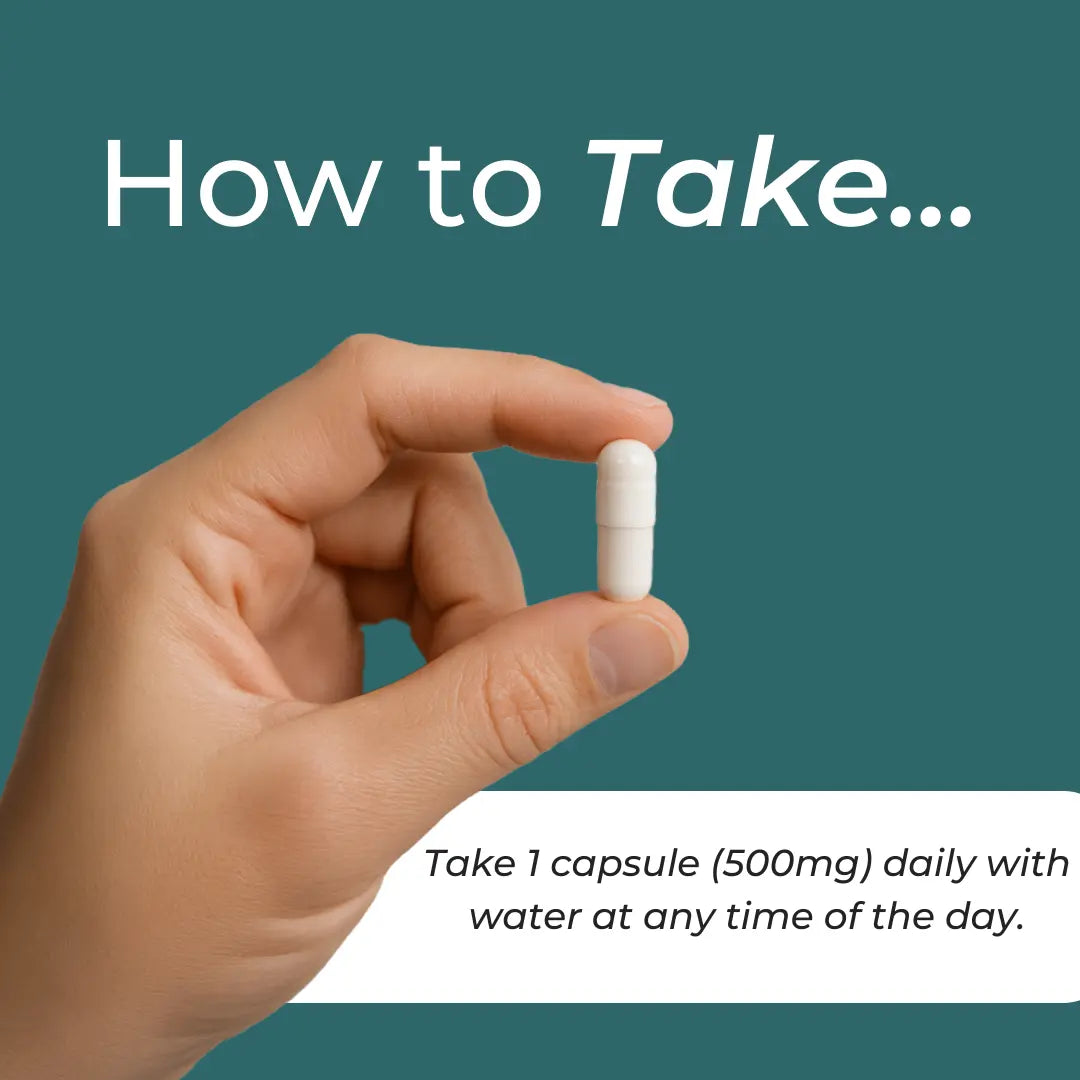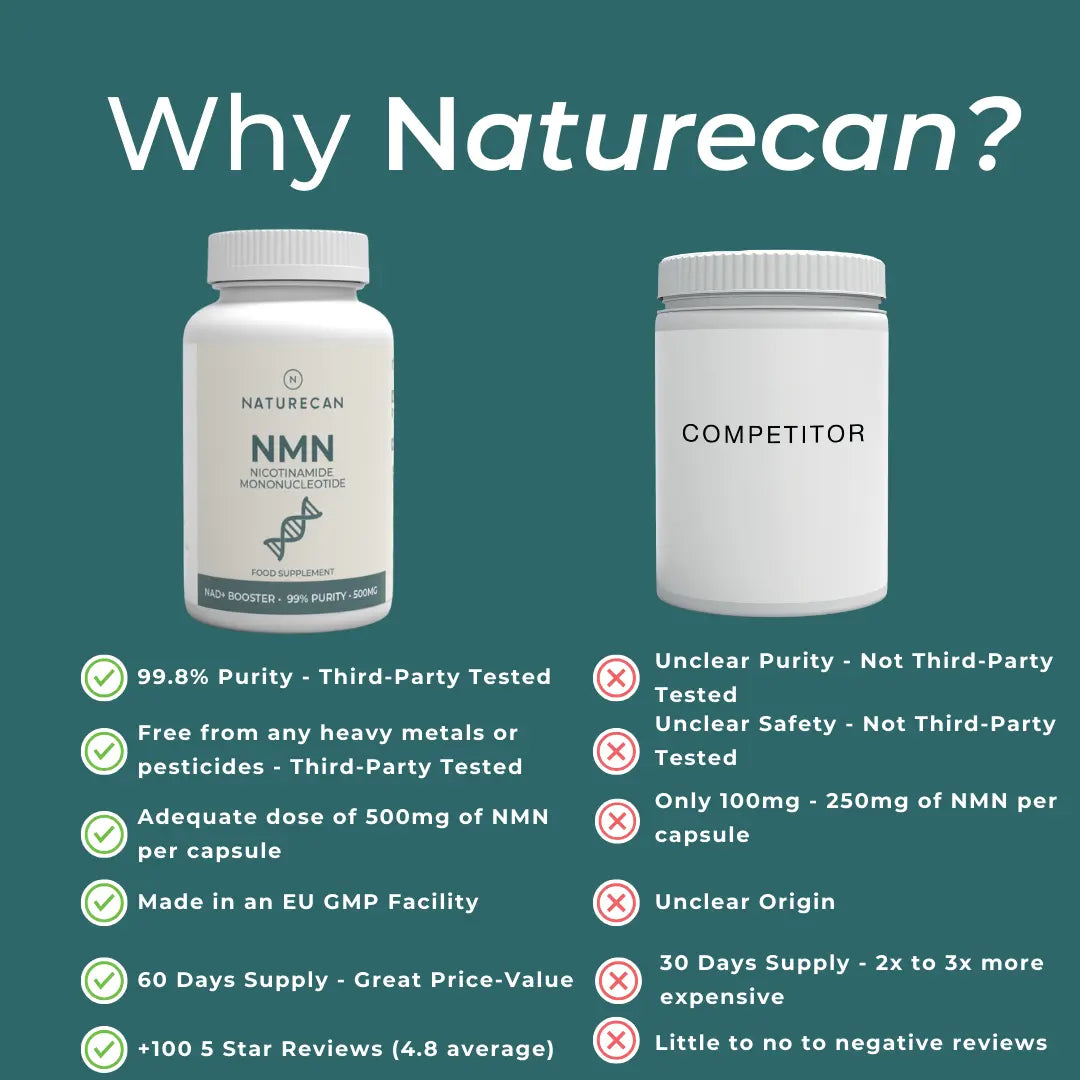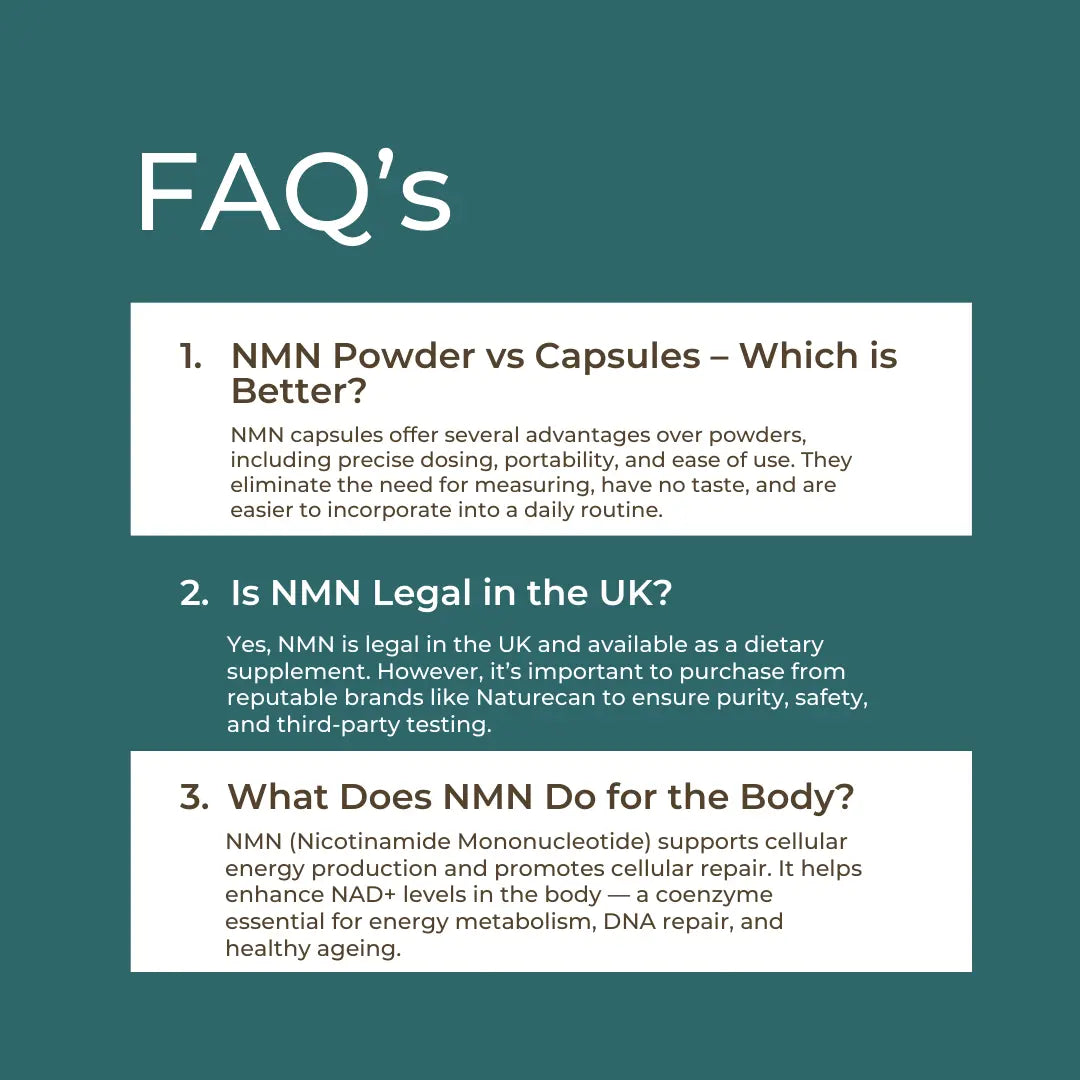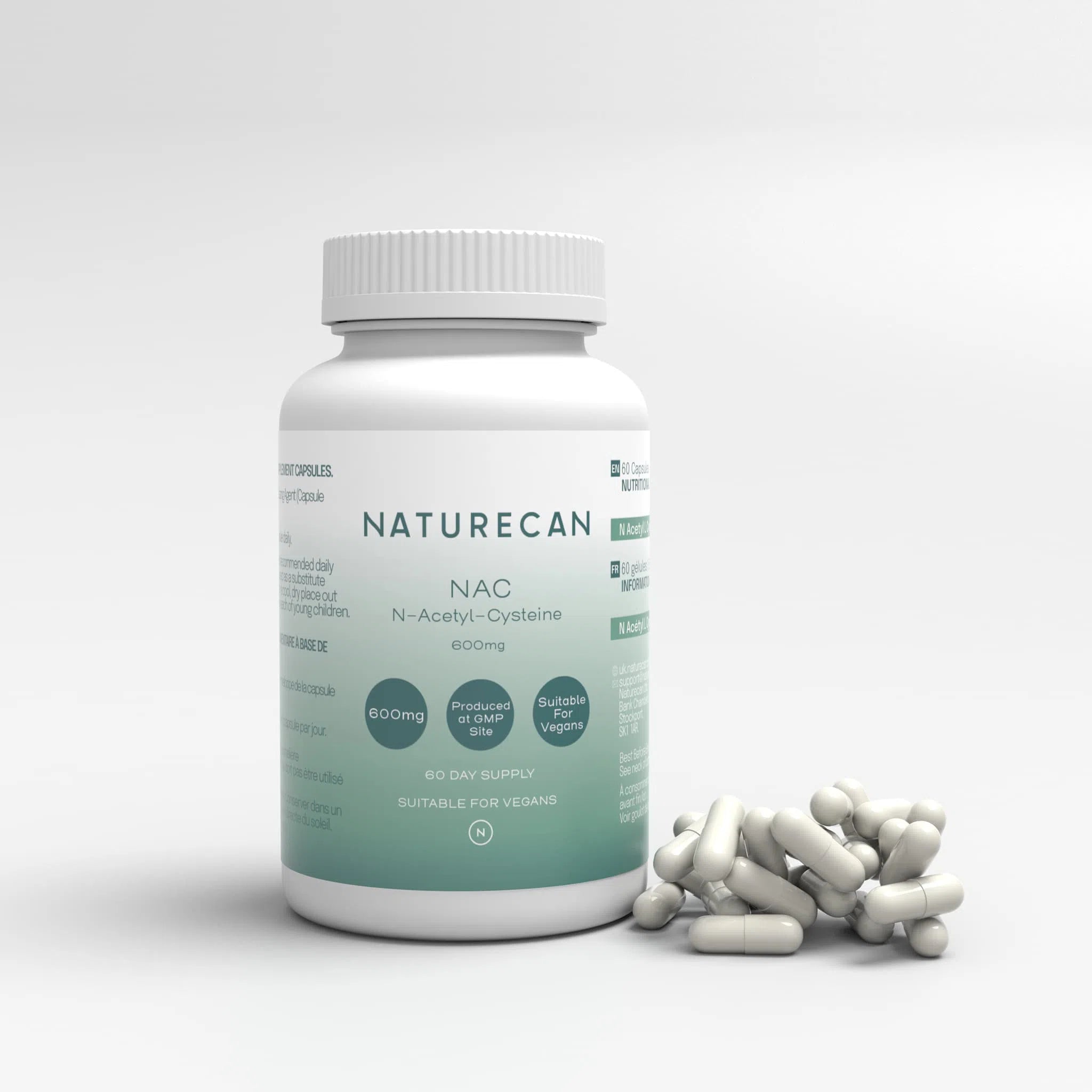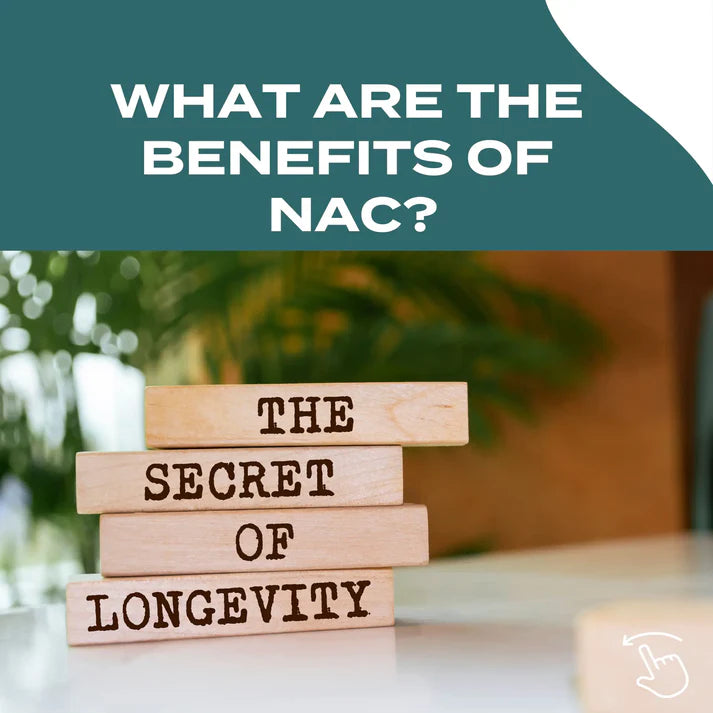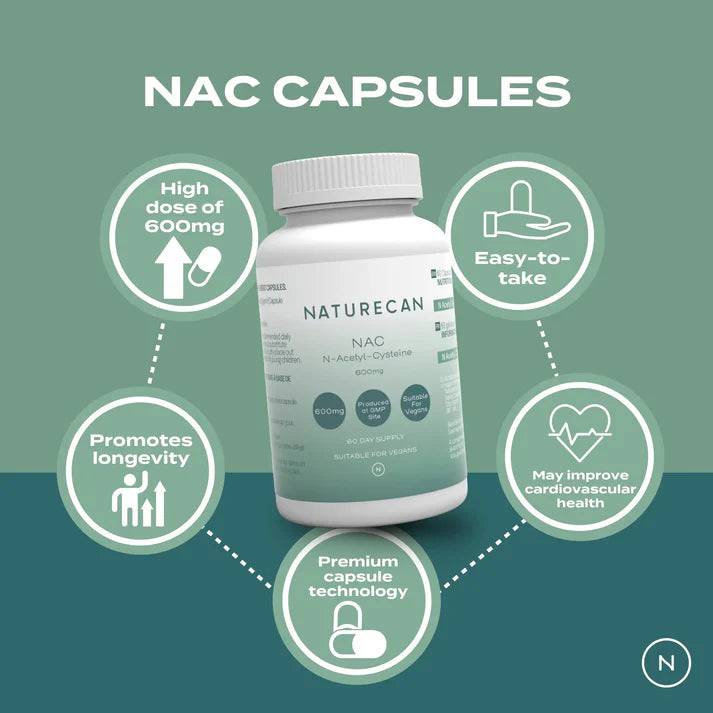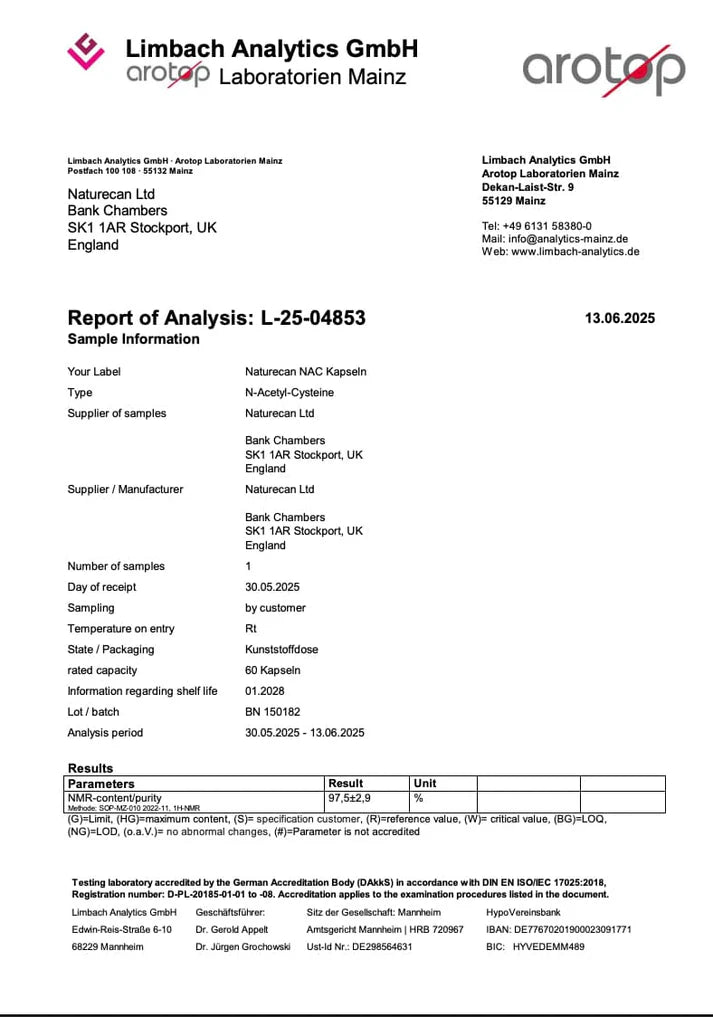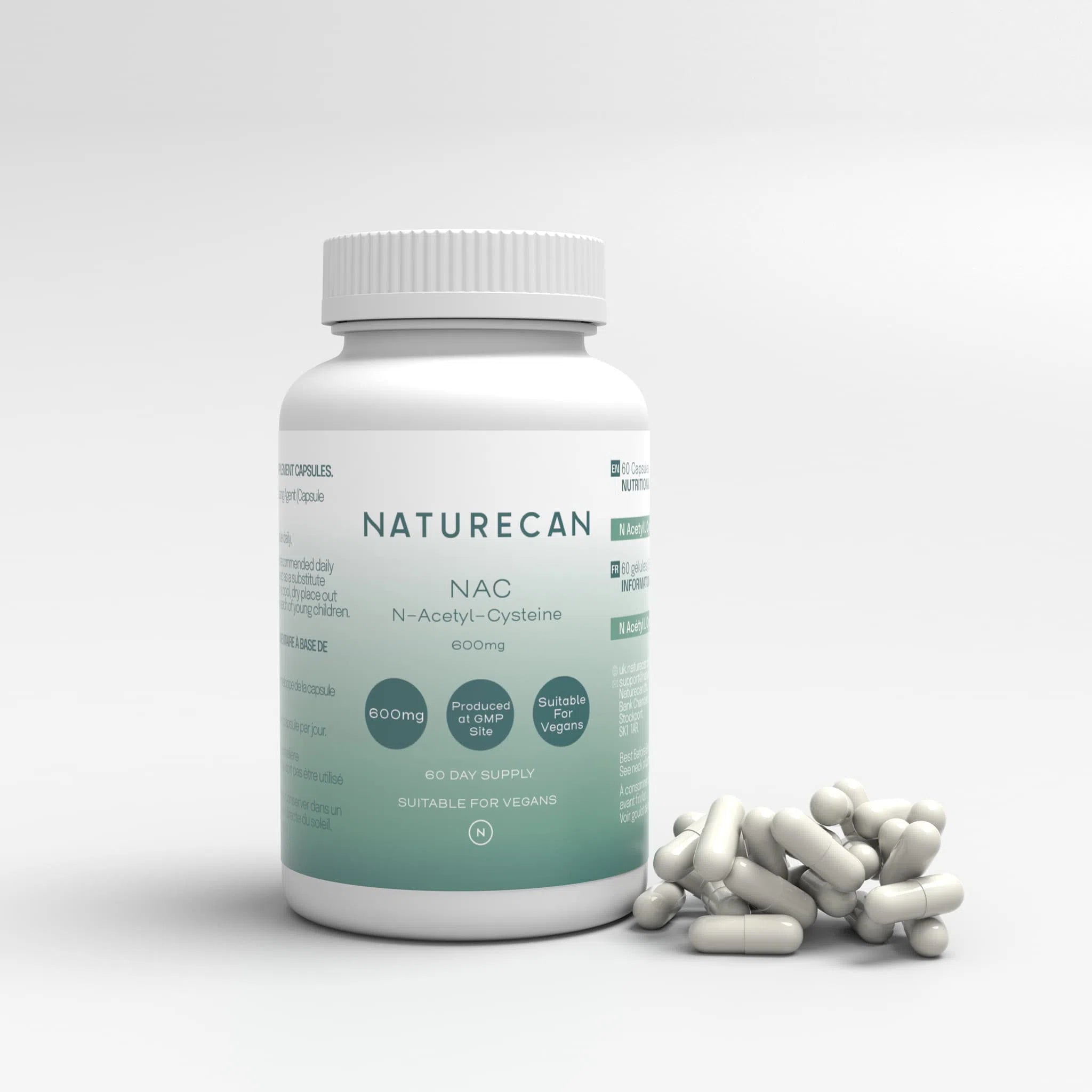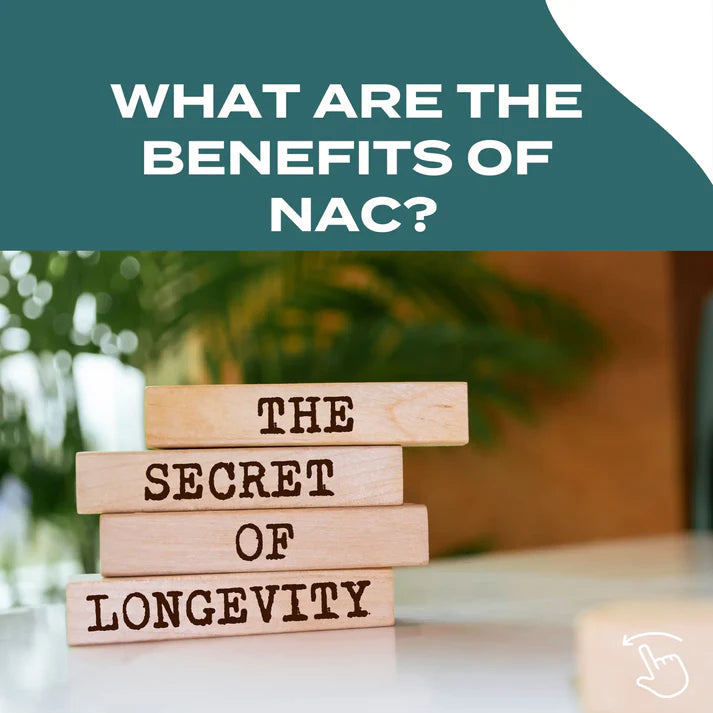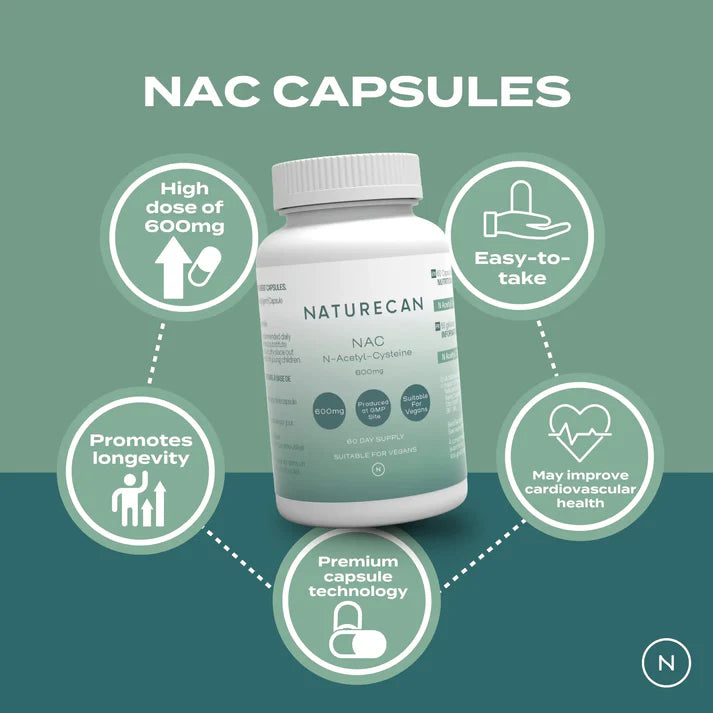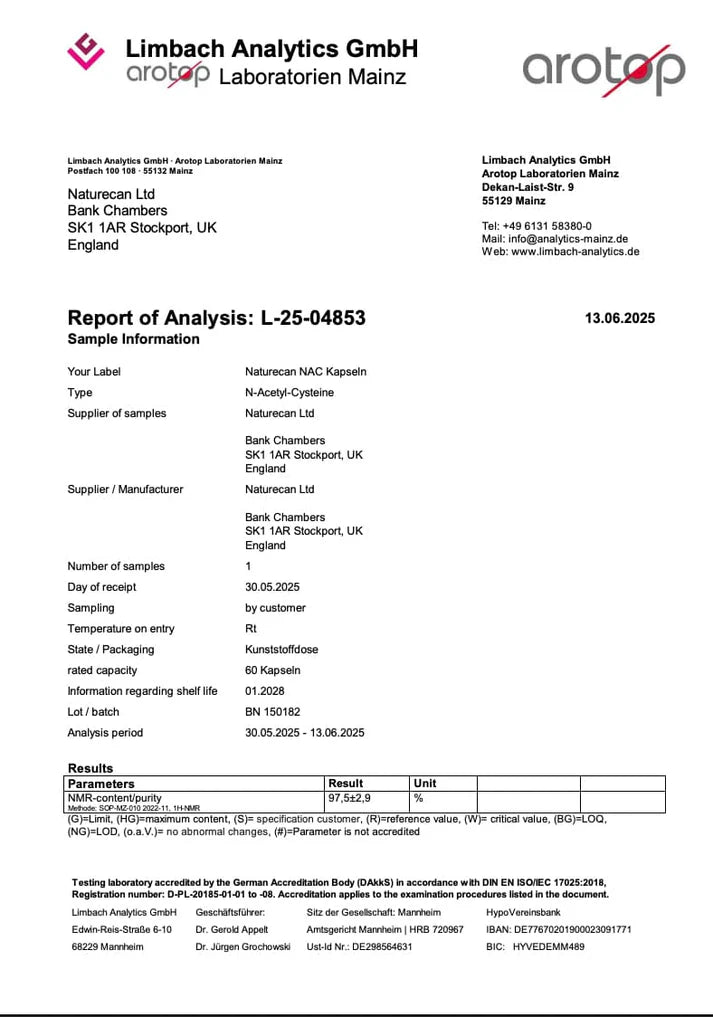What is Longevity? A Beginner’s Guide to Living a Longer and Healthier Life

Written by Valeria Briancesco & Reviewed by Paul Holmes.
Longevity is all about living longer while staying healthy and active. It’s not just about adding years to life but also adding life to years, focusing on lifespan (total years lived) and healthspan (years lived in good health).
By focusing on lifestyle changes and wellness practices, we can improve both.
Overview:
Key highlights
- The Importance Of Human Longevity
- What Causes Ageing
- How to Positively Impact Healthspan and Lifespan
- Longevity FAQ's
The Importance of Human Longevity
With advances in science, particularly in nutrition and cellular health, we now have ways to support a longer, healthier life. Longevity practices focus on keeping cells healthy, supporting body resilience, and promoting energy and vitality as we age. In this guide, you’ll discover practical steps for living longer, healthier, and more actively [1].
Defining Longevity
Longevity refers to the length of time an individual lives, encompassing both the quantity and quality of life. It is a complex and multifaceted concept influenced by a combination of genetic, environmental, and lifestyle factors. Over the years, human longevity has seen a remarkable increase. For instance, the average lifespan in the United States has risen from approximately 45 years in 1900 to over 75 years today. This significant improvement is a testament to advancements in healthcare, nutrition, and overall living conditions. Understanding the factors that contribute to longevity is crucial for developing effective strategies to promote healthy ageing and extend the human lifespan.
What Causes Ageing?
Ageing is inevitable, but understanding its causes can help us slow down its effects and improve how we age.
- Cellular Ageing and Oxidative Stress
Each cell in our body undergoes wear and tear over time, leading to cellular ageing. One key factor is oxidative stress—a process where free radicals (unstable molecules) damage cells, proteins, and DNA, accelerating ageing. Antioxidants in foods like fruits, vegetables, and certain supplements can counteract this process, helping reduce cell damage and promoting longevity [2]. - Telomeres and DNA Protection : Telomeres are the protective caps at the ends of our DNA. Every time a cell divides, these telomeres shorten, and shorter telomeres are linked to faster ageing and a higher risk of age-related diseases. Lifestyle changes, such as reducing stress, eating a balanced diet, and taking supplements like NMN, may help protect telomere length and slow down the biological clock [3].
- Glycation: High blood sugar levels lead to glycation, where sugar molecules bind to proteins and fats, damaging cells and tissues.
- Chronic Inflammation: Chronic inflammation contributes to cellular damage, affecting immune health and accelerating ageing.
- Mitochondrial Dysfunction: As we age, mitochondria (the cell’s energy powerhouses) become less efficient, leading to lower energy and increased cell damage.
- Lifestyle Factors: Poor diet, physical inactivity, stress, and lack of sleep can all contribute to faster ageing.
- Hormonal Changes: With age, hormone levels (e.g., estrogen, testosterone) decrease, impacting metabolism, muscle mass, and overall vitality.

How to Positively Impact Healthspan and Lifespan
Here are some key ways to support a longer, healthier life through lifestyle changes:
1. Eat a Nutrient and Protein-Rich Diet
A balanced diet high in antioxidants, healthy fats (like omega-3) and fibre supports cell health and reduces inflammation.
Foods like berries, leafy greens, nuts, and seeds contain essential vitamins, minerals, and antioxidants that help fight oxidative stress and improve cellular health.
Omega-3 fatty acids, found in fish like salmon and plant sources like flaxseed are particularly beneficial for heart and brain health, both of which are crucial for longevity.
If your diet does not contain a lot of fatty fish, supplementing e.g. with Vegan Omega-3 can help to achieve the desired Omega 3 levels that you require. Omega-3s also have powerful anti-inflammatory properties that help protect cells against age-related damage. Read more about Omega 3:

2. Exercise Regularly
Physical activity, and more specifically, a combination of strength and cardio training, boosts cardiovascular health, strengthens muscles, and supports mental well-being.
It also promotes better circulation, lung function and nutrient delivery to cells, which is essential for cellular repair and longevity.
While free radicals play a role in immune defence and cell signalling, an excess can lead to oxidative damage. ROS, such as superoxide and hydrogen peroxide, can initiate chain reactions that damage cell membranes, proteins, and DNA, leading to inflammation and cellular dysfunction3.
Quick Tip: Aim for at least 30 minutes of moderate exercise five times a week, like brisk walking, going to the gym, cycling, or swimming.

Get Quality Sleep
Sleep is a cornerstone of cellular repair, memory processing, and immune function—all essential for healthy ageing.
Quality sleep supports brain health, conserves energy, and plays a crucial role in preventing cognitive decline. For optimal benefits, aim for 7-9 hours of restful sleep each night, giving your body the time it needs to repair and rejuvenate at the cellular level.
For those seeking to improve sleep quality, magnesium can be an effective supplement, known to promote relaxation and more restful sleep. Find out the best time to take magnesium to maximise its sleep-supporting benefits.
Quick Tip: Stick to a consistent sleep schedule and create a calming bedtime routine to improve sleep quality and support longevity.

Reduce Stress
Chronic stress accelerates ageing by increasing cortisol levels, which can lead to inflammation and cell damage.
Practising stress reduction techniques, such as mindfulness, deep breathing, or yoga, can lower cortisol levels and support both mental and physical health.
Managing stress can also help reduce the risk of high blood pressure and health issues. Additionally, ashwagandha, an adaptogenic herb, is well-known for its potential ability to support the body in managing stress.
Studies suggest that ashwagandha may can help reduce cortisol levels, promoting a calmer mood and supporting resilience against the effects of chronic stress—making it an excellent supplement choice for those aiming to enhance both their well-being and longevity.
Quick Tip: Spend at least 10 minutes each day on stress-relieving activities.

The Longevity Guide: Everything You Need to Know About Longevity


This is our complete beginner's guide to Longevity. We explain what it is, what studies are available, where it comes from, what it is used for, and a few other facts you may not know.
Nutrition and Longevity
A healthy diet is essential for promoting longevity. Consuming a diet rich in fruits, vegetables, whole grains, and lean protein can help reduce the risk of age-related diseases such as heart disease, diabetes, and certain types of cancer.
Nutrients such as omega-3 fatty acids, antioxidants, and fibre have been shown to have anti-aging effects, supporting cellular health and reducing inflammation.
Conversely, a diet high in processed foods, sugar, and saturated fats can negatively impact longevity. Caloric restriction—reducing caloric intake without risking malnutrition—has been shown to promote longevity in animal models.
By focusing on a nutrient-rich diet, individuals can make meaningful strides toward a long and healthy life. While essentials like exercise, stress reduction, quality sleep, and good nutrition form the foundation of longevity, certain beneficial active ingredients can be challenging to obtain through food alone.
This is where supplements can play a valuable role in supporting overall health and longevity goals.

Supplements That May Support Longevity
Supplements can complement a healthy lifestyle, especially those shown to support cellular health and combat ageing.
Achieving exceptional longevity often involves a combination of genetic and lifestyle factors, with healthy eating and physical activity playing crucial roles in earlier decades, and genetic factors becoming more influential as individuals age into their eighties and beyond.
1. NMN (Nicotinamide Mononucleotide)
NMN boosts NAD+ levels in the body, a critical molecule for cellular energy, repair, and DNA maintenance. Studies suggest that NMN could help slow certain aspects of ageing by supporting cell function and energy production [5].Introducing Naturecan’s NMN capsules
2. NAC (N-Acetyl Cysteine)
NAC act as a powerful antioxidant, reducing oxidative stress and boosting the body’s levels of glutathione—another crucial antioxidant that detoxifies cells. NAC may help protect against cell damage, supporting longevity.
3. Resveratrol
Found in red wine and grapes, resveratrol is an antioxidant known to improve cellular health and potentially reduce inflammation. It supports cardiovascular health and may improve longevity by protecting cells from damage.
4. Spermidine
Spermidine promotes autuphagy, a process where the body cleans out damaged cells to make way for healthy, new cells. Autophagy is essential for cellular renewal and slowing down signs of ageing [6].
5. Quercetin
Known for its anti-inflammatory and immune-boosting properties, quercetin has the potential to help reduce age-related inflammation.
6. Berberine
Berberine helps manage blood sugar and supports metabolic health, both of which are linked to longevity.
7. Collagen
Supports skin elasticity, joint health, and overall physical resilience, making it a popular supplement for healthy ageing.
8. Apple Cider Vinegar Gummies
Naturecan's Apple Cider Vinegar Gummies offer a tasty and convenient way to support metabolic health, blood sugar balance, and weight management, which are essential factors in healthy ageing. These gummies are packed with acetic acid, known to aid digestion and potentially boost metabolism, helping you stay energised and resilient.
9. Magnesium Glycinate 3:1
Take your wellness routine to the next level. Naturecan’s Magnesium Glycinate offers a highly bioavailable and easy-to-digest magnesium powder to help you maintain overall health.
Whether you're looking to support the maintenance of teeth, balance electrolytes or help normal muscle function, our magnesium powder is a convenient, effective way to ensure you get the magnesium your body needs daily.
Additional Longevity Supplements:
- CoQ10: An antioxidant that boosts cellular energy and supports heart health.
- Curcumin: Known for its potential anti-inflammatory effects, curcumin may reduce age-related inflammation.
- Omega-3 Fatty Acids: Essential for brain and heart health, omega-3s are beneficial for reducing inflammation and supporting longevity.
Read more about it in Omega 3 Benefits Explained. - Protein: Important for maintaining muscle mass and supporting overall cellular health, protein is especially beneficial as we age to prevent muscle loss.
- Creatine: Known for its benefits in enhancing muscle strength, creatine also supports brain health and cellular energy, making it valuable for longevity.
Explore our longevity Bundle
Enjoy a 10% off with your next purchase with the code: Longevity10
Discover our selection of premium anti-aging skincare supplements - NMN, Resveratrol + Rosmarinic Acid and NAC, designed to enhance your longevity routine.
Take care of yourself every day and allow our anti-aging skincare range to nourish and enhance your appearance, inside and out.
For a complete list of Naturecan’s recommendations, see the "10 Best Longevity and Anti-Ageing Supplements" article.
Longevity Myths vs. Scientific Evidence
- Myth: “Supplements alone can prevent ageing.”
- Fact: Supplements are powerful allies in supporting health, but they’re most effective when paired with a balanced diet, regular exercise, quality sleep and stress management. Think of them as part of your overall wellness toolkit for living longer and healthier [8].
- Myth: “Longevity is purely genetic.”
- Fact: While genetics play a role, lifestyle choices have a huge impact on how well we age. Building healthy habits—like nutritious eating, not smoking, staying active, and managing stress—can greatly influence both lifespan and healthspan, helping you age gracefully and stay vibrant.
Naturecan’s Recommended Reads
For those who want to explore longevity further, consider these popular resources:
- Lifespan by David Sinclair
- The Telomere Effect by Elizabeth Blackburn
- The Longevity Diet by Valter Longo
- Outlive from Peter Attia
Naturecan Products
Discover Naturecan’s curated line of longevity supplements to support your journey.
Interesting Read: “10 Best Longevity and Anti-Ageing Supplements”
Summary
Longevity is a complex and multifaceted concept influenced by a range of genetic, environmental, and lifestyle factors. Understanding the factors that contribute to longevity is crucial for developing effective strategies to promote healthy ageing and extend the human lifespan.By adopting a healthy lifestyle, including a balanced diet, regular physical activity, and avoiding smoking, individuals can take proactive steps to promote their own longevity. Additionally, advances in medical research and technology hold promise for increasing human lifespan and improving the quality of life in old age. Embracing these strategies can help individuals achieve not just a longer life, but a healthier and more fulfilling one.

10 Best Longevity and Anti-Ageing Supplements
Discover the top 10 supplements to support your health and longevity!
Read Article
What Supplements Does Andrew Huberman Recommend?
Read now to learn the supplements that Prof. Huberman recommends!
Read Article
8 ways: how to boost your immune system
Want to enhance your immune system naturally, read our comprehensive guide!
Read Article
